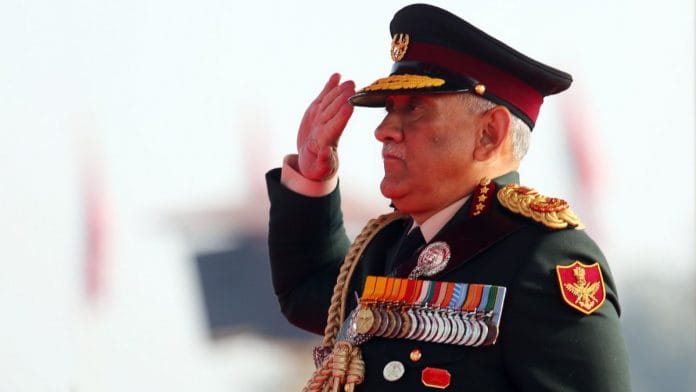Even as India remains in shock over the tragic and untimely death of our first Chief of Defence Staff Gen. Bipin Rawat in a helicopter crash, the government has initiated the process to select his successor.
The choice of the next Chief of Defence Staff (CDS), who will also be Secretary of the Department of Military Affairs (DMA), will be critical for the armed forces and the government because of the emerging reality of military challenges that India faces.
Face new challenges
When Gen Rawat took over as the CDS on 1 January 2020, China was not seen as the adversary. Till then, Pakistan was the main adversary and the Army was more oriented towards the anti-terror and counter-insurgency operations along the Line of Control (LoC) and in the hinterland.
But things changed with the Ladakh stand-off and the subsequent Galwan clashes. China has now emerged as the main challenge. Army Chief Gen M.M. Naravane was right when he stressed on the need to re-balance from the western sector with Pakistan to the northern sector with China, even before the stand-off actually started in April 2020.
The new CDS will have challenges because the possibility of a two-front war has moved from being a distant possibility to a more immediate threat. India also faces the threat of terrorism, not just by Pakistan-backed terrorists in Kashmir and the rest of the country but also China-backed insurgency in the Northeast that makes it seem more like a two-and-a-half front war.
The new CDS will not only have the pressure of fitting into the big shoes of Gen Rawat but also carrying ahead with some of the transformative reforms in the defence his predecessor had started.
Also read: Why aircraft accidents happen – Coonoor crash inquiry will have impact on IAF’s VVIP ops
And walk the tightrope
Gen Rawat was tasked with bringing among the Services a joint operation and acquisition mindset. It had many purposes — to cut the flab so that the burden of defence budget could be reduced and make a leaner and meaner force, capable of fighting wars of the future rather than remain in silos while harping on traditional means.
As Secretary DMA, Gen Rawat was tasked with bridging the gap between the civilian bureaucrats and the uniformed officials. He was meant to be the harbinger of a revolution in both bureaucratic and military affairs. He was a man on a mission and wanted to bring multiple changes, perhaps too fast for the liking of many within the force and the veteran community.
There is no denying that Gen Rawat was a man who was not afraid of taking decisions, no matter how sensitive they might have been — whether it was pensions or retirement age.
His penchant for speaking his mind without sugar-coating views with diplomatic niceties often got him into trouble too. Gen Rawat was someone who did not believe in diplomatic niceties when dealing with an issue. No doubt a diplomatic route with firmness would have helped him but then that is not what Gen Rawat was known for.
I once asked him whether he was affected by the criticisms. He said, “I am not immune but I know I am true to myself and my organisation. That is what matters”.
So when the government goes about selecting the new CDS, it will have to keep in mind that the person will have a tightrope to walk on and ensure that the three Services continue to work together towards integration.
The next CDS will have to forgo his original uniform, mindset and think from a tri-Service point of view. He will also have to ensure that some of the bitterness that had crept in among the Services is taken care of even as he remains firm rather than letting the Service headquarters run amok.
He should be able to tactfully walk over the minefields that the position of the CDS and Secretary DMA bring along while ensuring that the armed forces are not hit. The country’s top-most military leader should be able to see security issues through the prism of China and emerging warfare rather than from a Pakistan centric and counter insurgency/counter terrorism mindset.
For the next CDS, toughest will be the act of bidding on behalf of the government but at the same time ensuring that the red line between the two always remains.
Views are personal.
(Edited by Anurag Chaubey)






